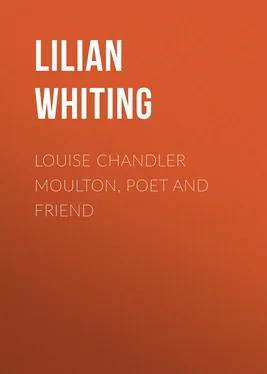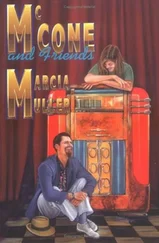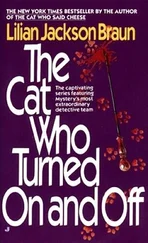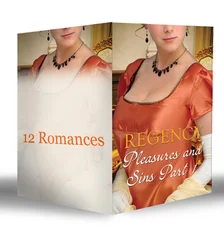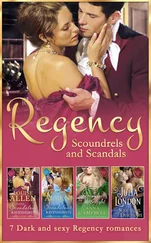Lilian Whiting - Louise Chandler Moulton, Poet and Friend
Здесь есть возможность читать онлайн «Lilian Whiting - Louise Chandler Moulton, Poet and Friend» — ознакомительный отрывок электронной книги совершенно бесплатно, а после прочтения отрывка купить полную версию. В некоторых случаях можно слушать аудио, скачать через торрент в формате fb2 и присутствует краткое содержание. Жанр: Биографии и Мемуары, foreign_antique, на английском языке. Описание произведения, (предисловие) а так же отзывы посетителей доступны на портале библиотеки ЛибКат.
- Название:Louise Chandler Moulton, Poet and Friend
- Автор:
- Жанр:
- Год:неизвестен
- ISBN:нет данных
- Рейтинг книги:4 / 5. Голосов: 1
-
Избранное:Добавить в избранное
- Отзывы:
-
Ваша оценка:
- 80
- 1
- 2
- 3
- 4
- 5
Louise Chandler Moulton, Poet and Friend: краткое содержание, описание и аннотация
Предлагаем к чтению аннотацию, описание, краткое содержание или предисловие (зависит от того, что написал сам автор книги «Louise Chandler Moulton, Poet and Friend»). Если вы не нашли необходимую информацию о книге — напишите в комментариях, мы постараемся отыскать её.
Louise Chandler Moulton, Poet and Friend — читать онлайн ознакомительный отрывок
Ниже представлен текст книги, разбитый по страницам. Система сохранения места последней прочитанной страницы, позволяет с удобством читать онлайн бесплатно книгу «Louise Chandler Moulton, Poet and Friend», без необходимости каждый раз заново искать на чём Вы остановились. Поставьте закладку, и сможете в любой момент перейти на страницу, на которой закончили чтение.
Интервал:
Закладка:
"Every one was very good to me—Dr. Holmes, Longfellow, Whittier—all those on whose work I had been brought up. And then the broader religious thought of Boston began to conquer the Puritanism in which I had been educated. Whittier was a Quaker, but he believed most of all in the loving Fatherhood of God,—the Divine care which would somehow, somewhere, make creation a blessing to all on whom had been bestowed the unsought gift of life. He told me once how this conviction first came to him. It was a touching anecdote of his childhood when his mother's tenderness to the erring aroused in him the perception of the goodness of God. Whittier was a singularly modest man; if one praised his work he would say, 'Yes, but there should be a perfection of form, and what I do is full of faults.' Once, at an evening party, he was vainly entreated to recite one of his poems. 'No,' he said, 'but I wish she would,' pointing to me. I then read 'The Swan Song of Parson Avery,' and when I had finished he came across the room and said, 'Why, thee has really made me think I've written a beautiful poem.'
"No words could overpraise the sweet graciousness of Longfellow and Dr. Holmes to me, a new-comer into their world. I knew Ralph Waldo Emerson, also. The very last time I saw him he had just returned from California, and he crossed the Athenæum Library, where we chanced to be, to ask me if I had ever been there myself and had seen the big trees. 'Why,' he said, 'it took thirteen horses to go round one tree, the head of one touching the tail of another—what do you think of that?'
"I remember once, when I was a guest in his house in Concord, his telling me that he had long wanted to make an anthology of the one-poem men. And he went on to speak of the poets who were remembered by only one poem. He never carried out his idea, but I wish some one else might."
It was a rich and stimulating atmosphere into which Mrs. Moulton entered in Boston. The first winter after her marriage Thackeray visited this country and gave in Boston, in January of that year (1856), his lectures on "The Four Georges." In recalling these, Mrs. Moulton afterward said:
"I sat close to the platform, thoroughly entranced, and longing to speak to him—this great man! longing with all a romantic schoolgirl's ardor and capacity for hero-worship. I never missed a lecture. The last day and the last lecture came, and as Mr. Thackeray came from the platform he bent toward me and said: 'I shall miss the kind, encouraging face that has sat beneath me for so many hours'; and I was too surprised to be able to answer him a word. But it is a memory that has never left me."
Boston in the fifties had little to boast of in the artistic line. Henry James, writing of Hawthorne's time, noted with amusement the devotion to the "attenuated outlines" of Flaxman's drawings. The classic old Athenæum contained practically all that the city could offer in the way of art. Here were some casts from antique marbles, specimens of the work of Greenough and Thorwaldsen, a certain number of dull busts of interesting men, a supply of engravings, and a small collection of paintings. The paintings were largely copies, but included originals by Allston, Copley, and a few others.
In music the taste was pure, if the opportunities were but provincial. Grisi and Mario in brief visits delighted the town in opera; the Handel and Haydn Society provided oratorio; the Harvard Orchestra gave instrumental concerts. In the spring of 1856 was held a Beethoven Festival, and the bronze statue, so long familiar in the old Boston Music Hall, was inaugurated with a poem by the sculptor, William Wetmore Story.
In intellectual life Boston had long been distinguished among American cities. In these early years of Mrs. Moulton's life here Lowell gave his course of lectures on "Poetry" before the Lowell Institute, and Curtis his course on "Bulwer and Disraeli." Longfellow at this time was writing "Hiawatha"; Richard Grant White was often coming over from New York to confer with the Cambridge group on nice points in his edition of Shakespeare. The interest in literature is illustrated by the fact that when "Maud" appeared in the summer of 1855 Longfellow and George William Curtis made a pilgrimage to Newport to read and discuss it with Mrs. Julia Ward Howe. The aristocratic ideal in the world into which Mrs. Moulton had come was distinctly intellectual rather than plutocratic.
The year of her marriage was also the year of the publication of her second book, a novel entitled "Juno Clifford," which was brought out anonymously by the Appletons. Again the praise of the reviewers was practically unanimous. A Boston critic wrote: "The authorship is a mystery which perhaps time will unravel, for rumor is ascribing it to lofty names in the world of literature"; and George D. Prentice, in the Louisville Journal , in less journalistic phrase, characterized the story as having "numerous points of strange beauty and a strange pathos."
Among the sympathetic friends who at this time enriched Mrs. Moulton's life none was of personality more striking than Mrs. Sarah Helen Whitman, whose connection with Poe was at once so touching and so tragic. "No person ever made on me so purely spiritual an impression," wrote Mrs. Moulton in The Athenæum in after years, "as did Mrs. Whitman. One of her friends said of her: 'She is nothing but a soul with a sweet voice.'" Some of the poems signed "Ellen Louise" had attracted the attention of Mrs. Whitman, and a correspondence followed. In a postscript to the first letter written to Mrs. Moulton after her marriage, Mrs. Whitman says:
"You ask my plans. I have none nor ever had. All my life I have been one of those who walk by faith and not by sight. I never can plan ahead. The first words I ever learned to speak were caught from hearing the watchman call out in the middle of the night, 'All's well.' This has always been my great article of faith. An angel seems ever to turn for me at the right time the mystic pages of the book of life, while I stand wondering and waiting,—that is all."
On the appearance of "Juno Clifford," Mrs. Whitman wrote:
My Dear Louise: I have read "Juno Clifford," and my "honest opinion" is that it is a very fascinating story, eloquently related. I was surprised at its finished excellence; yet I expected much from you.
I have written a notice for the Journal which will appear in a few days. I will send you a copy of the paper. I wish I had leisure to tell you all I think of the book. You have all the qualities requisite for a successful novelist, and some very rare ones, as I think. The grief of the poor Irish girl brought tears to my eyes,—eyes long accustomed to look serenely on human sorrows. The character of Juno is admirably portrayed and you have managed the "heavy tragedy" with admirable skill. I do not, however, like to have Juno tear out her beautiful hair by "handfuls," and I think there is a lavish expenditure of love scenes in the latter part of the book; but all young lovers will freely pardon you for this last offence, and I am not disposed to be hypercritical about the hair.
I can find nothing else to condemn, though I would fain show myself an impartial judge. I wish "Juno" all success, and am ever, with sincere regard,
Your friend, S. Helen Whitman.P.S.—I saw the death of Miss Locke in The Times ! could it have been our Miss Locke? Do you know? I am very busy just now. I have no good pen, and my pencil turns round and round like an inspired Dervish, but utters no sound; so look on my chirography with Christian charity, and love me, nevertheless.
S.H.W.In other letters from Mrs. Whitman, undated, but evidently written about this time, are these passages:
"I have to-day found time to thank you for your letter and beautiful poem. It is very fine, picturesque, and dramatic. These are, I think, your strong points, but you have touches of pathos.... You must not leave off writing stories, nor do I see any necessity of making any selection between the muse of poetry and the muse of romance. I should say, give attendance to both, as the inspiration comes.... Dr. Holmes, whom I met at the lectures of Lola Montez, is charmed by her...."
Читать дальшеИнтервал:
Закладка:
Похожие книги на «Louise Chandler Moulton, Poet and Friend»
Представляем Вашему вниманию похожие книги на «Louise Chandler Moulton, Poet and Friend» списком для выбора. Мы отобрали схожую по названию и смыслу литературу в надежде предоставить читателям больше вариантов отыскать новые, интересные, ещё непрочитанные произведения.
Обсуждение, отзывы о книге «Louise Chandler Moulton, Poet and Friend» и просто собственные мнения читателей. Оставьте ваши комментарии, напишите, что Вы думаете о произведении, его смысле или главных героях. Укажите что конкретно понравилось, а что нет, и почему Вы так считаете.
